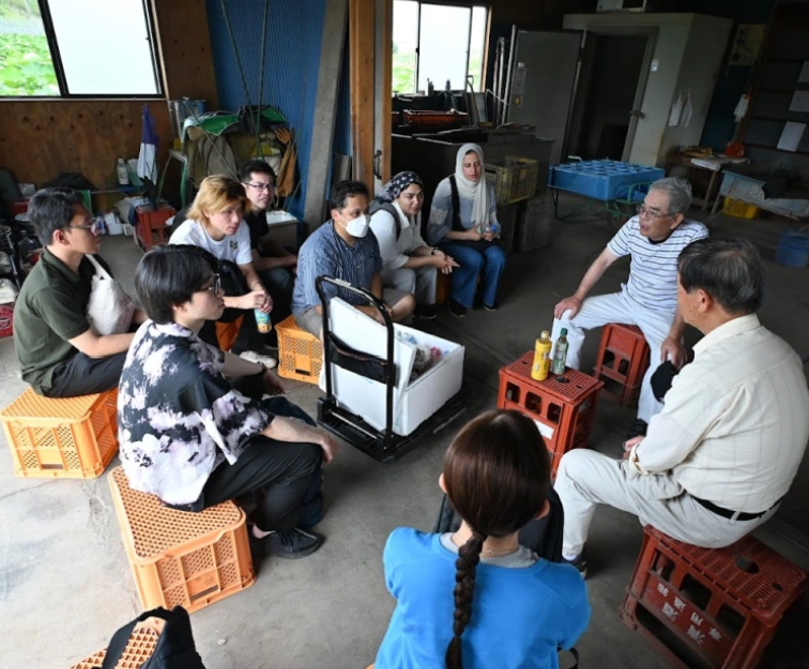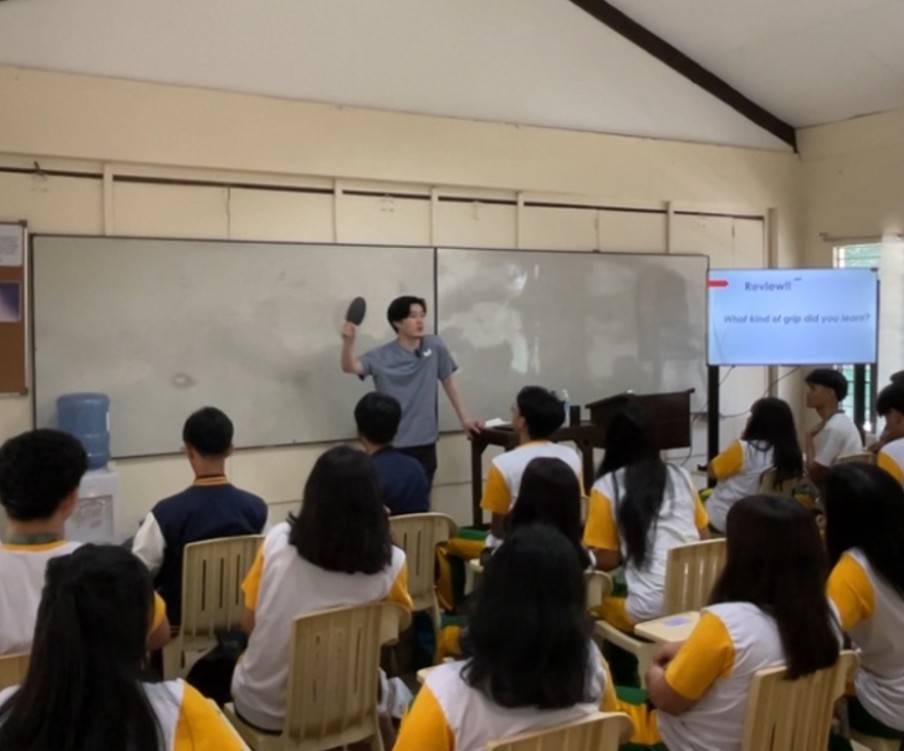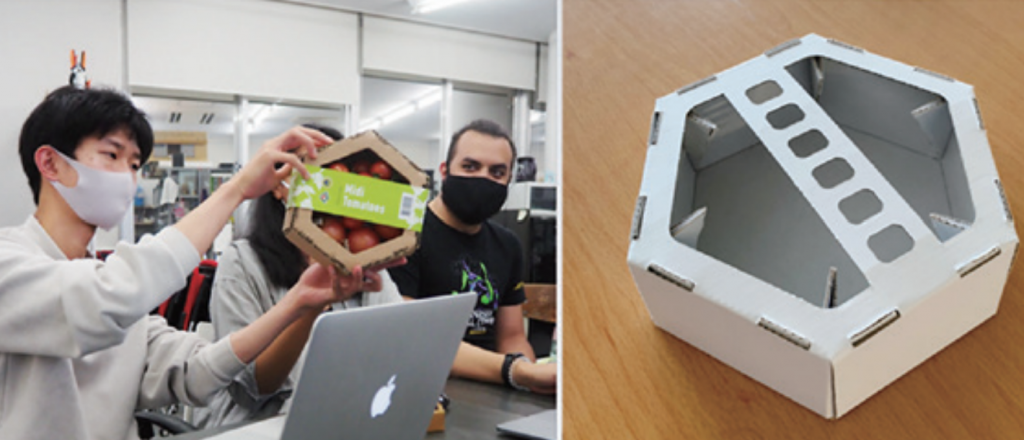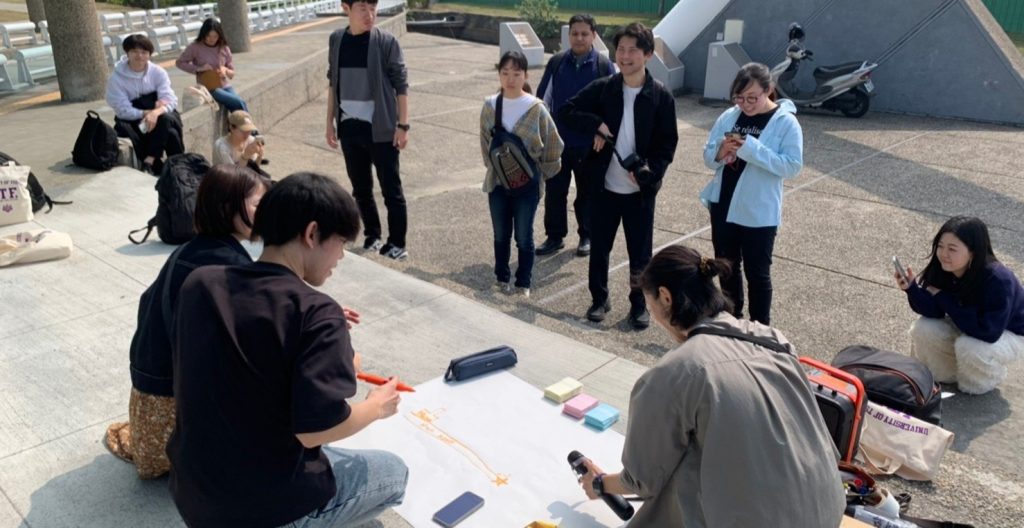To foster ‘global start-uppers’ with strong analytical skills, intercultural competence, and innovative thinking, University of Tsukuba adopted the concept of musha shugyo (武者修行) —the ‘samurai’s journey of self-growth. It is similar to the Chinese Youxia, or Knight Errantry in feudal Europe. A warrior (shugyōsha), would wander the land honing his skills. This is executed through Run-up, Hop, Step, and Jump programs.

These programs are conducted at University of Tsukuba with the aim of fostering a passion for global education among students. They include courses and activities specifically designed to enhance intercultural competence, effective communication, career development, and global citizenship. In addition to academic programs, the university actively promotes extracurricular activities that encourage international engagement, such as the Tsukuba Action Project (T-ACT) and the Student Ambassador Program, which provide platforms for students to connect across cultures and contribute to internationalization efforts. This dynamic environment equips students with a strong foundation and serves as a “RUN-UP,” enabling them to build the momentum needed to excel as future global leaders.

MULTICULTURAL COURSES
Courses that offers multicultural co-learning experiences while earning academic credits. This includes lectures, summer programs, workshops, and joint activities with overseas partners working on social issues.

INCLUSIVE SMART SOCIETY PROGRAM
Conducted in partnership with Ohio State University. It is a series of lectures and workshops about various aspects of an “inclusive society”. In this course, group discussions among students of UT and Ohio State will be held and exceptional students will have the chance to visit Ohio.
(Available in JV-Campus)

Students will work on social issues of their choice, conduct field research, and develop a prototype technology to improve the quality of life of target users. Student may choose to work no topics in Japan or overseas.
(Applications in May)

An internship program involving student exchange focusing on developing global educational professionals. Participants learn the social and educational contexts of each country, cultivating international awareness, and understanding different cultures.
(Applications in October)

The focus is on hands-on activities where students actively “HOP” in and collaborate with groups comprising international members, fostering teamwork and cross-cultural understanding. Notable examples of these courses include the Inclusive Smart Society Program, Global Issues, and the Next-Generation Entrepreneur Course, all of which emphasize practical problem-solving and innovation. Additionally, the newly established GASSHUKU program, designed to promote immersive and collaborative learning experiences, is a key component of the “Hop” component, further enhancing opportunities for global engagement and skill development.
GASSHUKU
Students from overseas partner universities stay with Japanese students in on-campus dormitories and solve social issues for local governments and companies in the Future Society Design Building. Internships will also be conducted in cooperation with companies in Japan. GASSHUKU provides opportunities to solve local issues in Japan from an international perspective, and work in teams composed of Japanese and non-Japanese students.

Joint Design Workshop with UGA students

These activities take place beyond University of Tsukuba, encouraging students to “STEP” out of their comfort zones and engage deeply with global social issues. Examples include hackathon workshops in France, agricultural internships abroad, international partnership training programs, and the recently launched DOJO initiatives. Through these programs, students not only gain practical experience but also develop critical thinking, problem-solving skills, and a broader understanding of the interconnected challenges facing the global community.
DOJO
A place for Japanese students to work with local students at CiC and other overseas partner universities to solve social problems of local governments and companies. It includes Hackathon events and other short-term training programs aimed at solving social issues. These activities also grant credits and issue micro-credentials.

Visual Mapping in Kaohsiung, Taiwan

DOJO IN TAIWAN:
SHOPPING CULTURE
Held at National Cheng Kung University every January-February Students learn about the business culture in Taiwan and develop a proposal based on their learnings.
(Applications in December)

DOJO IN FRANCE:
ARTS AND DESIGN
Held at the University of Grenoble Alpes every September, students learn about production through digital design and digital fabrication by doing hands-on projects.
(to be announced)

GLOBAL EXPANSION OF
DOJO PROGRAMS
University of Tsukuba is actively expanding Social Impact Programs around the world, working with our Global Partners. Stay tuned for more updates.
(regularly check for updates)

Students can participate in mid- to long-term activities abroad, enabling them to immerse themselves in diverse international environments and gain valuable global perspectives. This is made possible by University of Tsukuba’s extensive network, which includes 13 Campus in Campus (CiC) partners and 383 partner universities across 67 countries and regions, fostering opportunities for cross-cultural learning and collaboration. It is taking a “JUMP” towards their goals either in the academe or in corporate setting.
